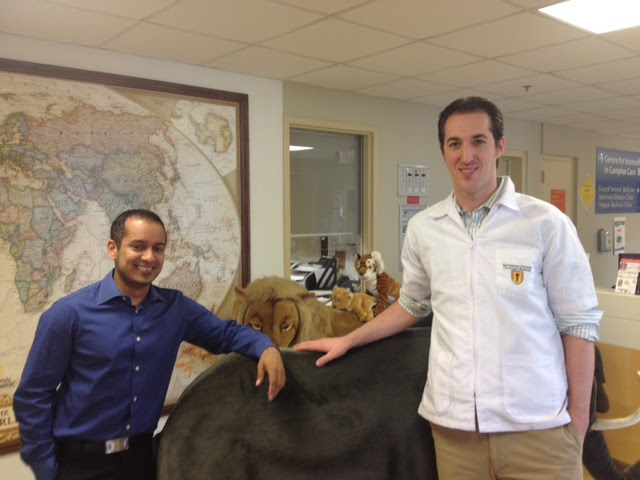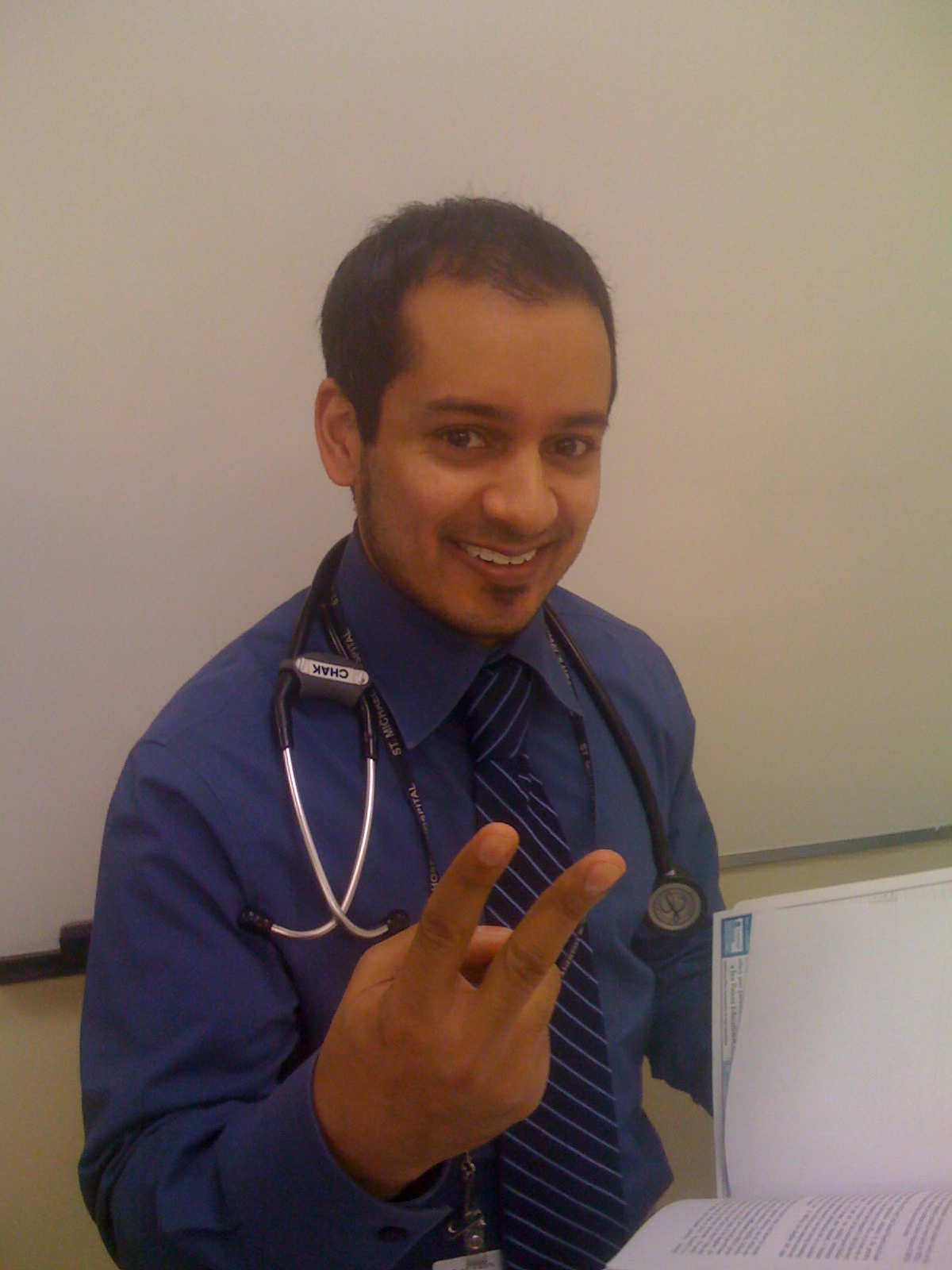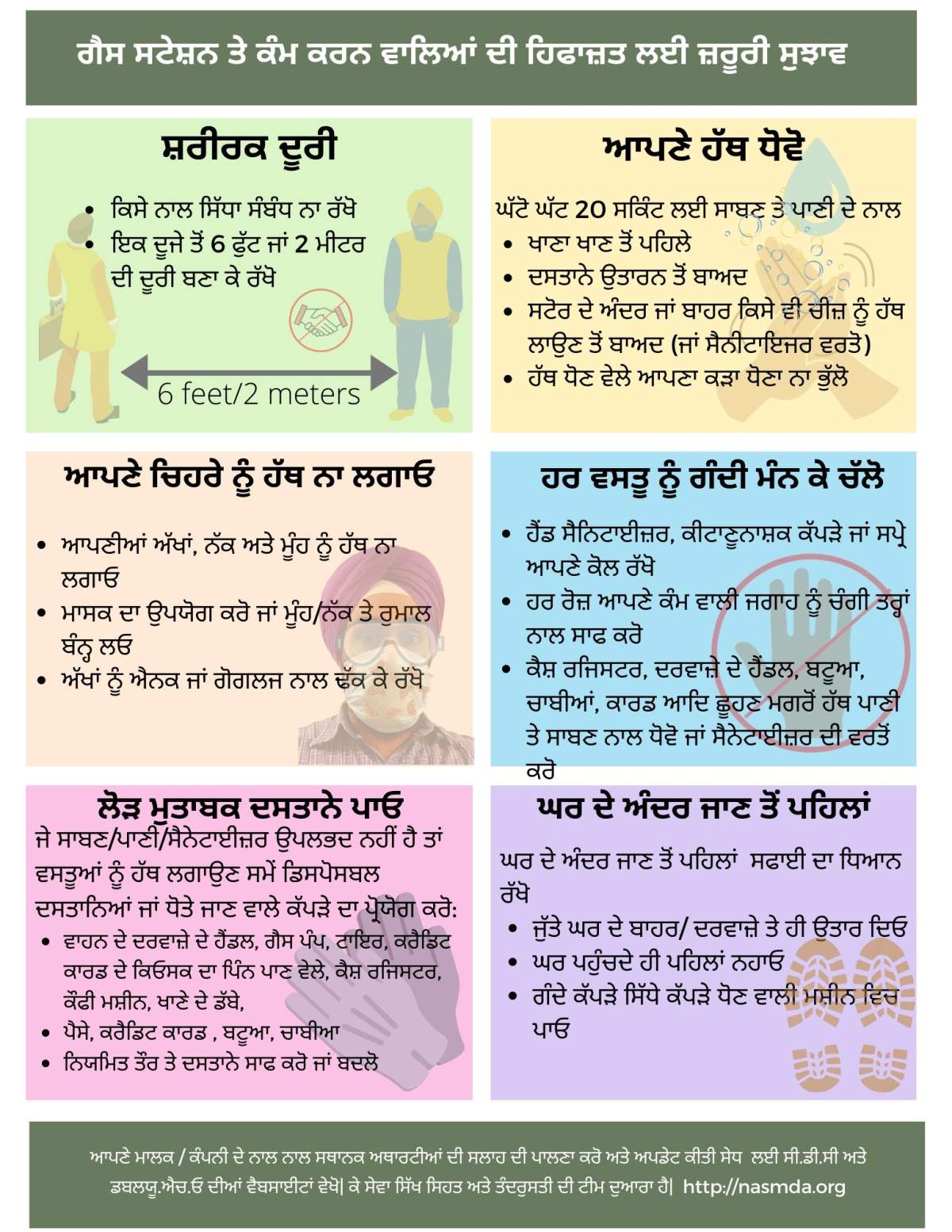Sumon Chakrabarti is looking forward to the day when he’s no longer asked to appear on the nightly news.

The infectious diseases physician works for Trillium Health Partners in Mississauga, just west of Toronto, in one of the regions hardest-hit by the coronavirus pandemic in the country.
And he’s also one of a number of front-line doctors across Canada who have volunteered their scarce free time over the past year to provide daily media interviews and help Canadians understand COVID-19.
“There’s so much stuff coming out on a daily basis — information, misinformation — and I think the big thing is to try to not come to conclusions right away,” he said.
“Some of the information we have is uncertain because we just don’t know. But somebody who speaks very confidently about something that’s wrong, that can spread much quicker, so that’s been a constant struggle.”
The married father of two young girls grew up in the small city Sarnia, Ont., on the shores of Lake Huron. In his teens, he developed a kidney disorder, which inspired an interest in medicine. But he also had a passion for teaching.
“When I was in the first years of med school, I really, really enjoyed being with medical students and residents. I have always naturally gravitated towards teaching of some kind. And I found that, when I was discussing these complicated topics, it seemed I was pretty good at being able to explain it to people.”
In January 2020, when news of a mysterious virus started making headlines, Chakrabarti began receiving phone calls from journalists.
Nearly every day since has raised more anxious questions: How does COVID-19 spread? How long after exposure to the virus does a person become contagious and develop symptoms? Are the new vaccines safe for people who are obese or immunocompromised?

With the pandemic lockdown, most of his interviews are conducted over video conference, such as Zoom or Skype. As a result, Chakrabarti can take a few minutes in between seeing patients or after putting his daughters to bed in the evening to log on and answer a few questions.

Get weekly health news
“To be able to Skype and Zoom quickly, it’s been a lot easier,” he said, joking that it also means he can wear shorts during an interview. “That’s huge, by the way.”
In addition to giving interviews, Chakrabarti has also written articles, including one column in November calling for action to address the disproportionately high number of cases amongst his South Asian community.
Chakrabarti and some of his colleagues are also working to translate public health advice.
“I always like to give positive messaging. Nobody likes finger-wagging. There are times when you have to tell people that this is what we need to do, but doing it in a positive way as opposed to insulting people, shaming people,” he explained.
“I think with that in mind, you can really be effective at messaging. And I try that every day.”
And he’s not alone. Another front-line physician who has quickly become a household name is Isaac Bogoch. Bogoch and Chakrabarti are old friends — they trained in internal medicine together at the University of Toronto.

Bogoch is based at Toronto General Hospital. In addition to seeing patients, he’s also an associate professor at the University of Toronto and was recently appointed to Ontario’s Vaccine Distribution Task Force.
In the midst of that daunting juggling act, Bogoch also regularly makes time for interviews, often in the early mornings and late evenings.
His motivation stems, in part, from the overwhelming volume of misinformation about the virus and pandemic circulating online and on social media.
“It’s wild watching an idea that’s wrong or misinformed form online. And you can watch it amplify before your eyes and look at people comment and build off it. It is absolutely mind-boggling to see that happen,” he said. “And you realize what a task it is, to combat that. And quite frankly, I think we failed.”
Lisa Barrett echoed those sentiments. The infectious diseases doctor at Dalhousie University in Halifax has also become a familiar face for Canadians. Five years ago, Barrett was conducting clinical trials and lab work with Dr. Anthony Fauci, now the top immunologist in the United States who is also no stranger to the spotlight.
Barrett recalled Fauci’s advice about the importance of public health education: “He said, ‘if you’re given the opportunity to share information with the public, do it, do it often, do it well, because otherwise someone else is going to fill that void and you might not be as happy with the message,'” she said. “Actually, it’s kind of been an honour to get to do it. That’s why I keep at this every day.”
There have even been occasions where that misinformation has directly interfered with their work.
One of their friends and colleagues, Dr. Zain Chagla, an infectious diseases physician at St. Joseph’s in Hamilton, launched a clinical trial in April to determine if the malaria drug hydroxychloroquine might be effective against COVID-19.
“I tried to do a large clinical trial across Ontario about hydroxychloroquine, which ended up being this drug that Donald Trump started selling,” Chagla recalled.
Donald Trump began backing hydroxychloroquine early in the pandemic, calling it a “game changer.” Following the president’s endorsement, the United States’ Food and Drug Administration authorized hydroxychloroquine for emergency use, sparking accusations that the agency was buckling to political pressure from the White House.
The FDA later rescinded that authorization and issued a safety warning, saying the drugs could cause heart-rhythm problems
“All of this misinformation came out and it made it so hard to actually finish this damn trial. And at the end of the day, hydroxychloroquine showed no effect,” he said.
“The misinformation actually slowed down the actual research to find the correct information.”
Like Chakrabarti and Bogoch, Chagla is also a regular contributor to public health education in the pandemic, giving interviews and writing articles, while stressing the importance of putting science above politics.
“As much as there’s science, there is so much political theory, it’s been aligned with party lines and it’s just getting overwhelming,” he said.
“As doctors, we try to be completely devoid of politics and follow the science. But even in our own communities, there are people that are succumbing to this. And it just makes it even more dicey for the public to say, who do they trust and how do they get consistent, reliable information?”

As a result of their newfound public profiles and outspokenness, Chagla, Bogoch and Chakrabarti all said they’ve received plenty of backlash.
“I’ve got a folder of hate mail,” Bogoch said, noting that critics often point to instances when public health advice has changed over time, such as the messaging around face masks.
“They’ll point to (one of us) and say: First you said this and now you’ve said that! Look, they can’t even make up their minds!'” Bogoch said.
“It’s completely acceptable to modify your opinion based on new information, emerging information. That’s how science works.”
Despite the blowback and the extraordinary pressures of the pandemic, the physicians said they’re committed to continuing their regular appearances and public health education. But they’re also looking forward to the end.
“As much as this has been great to talk with the media,” Chakrabarti said, “I think once this is all over and I can kind of fade back into relative anonymity, I’ll be happy about it.”





















Comments
Want to discuss? Please read our Commenting Policy first.